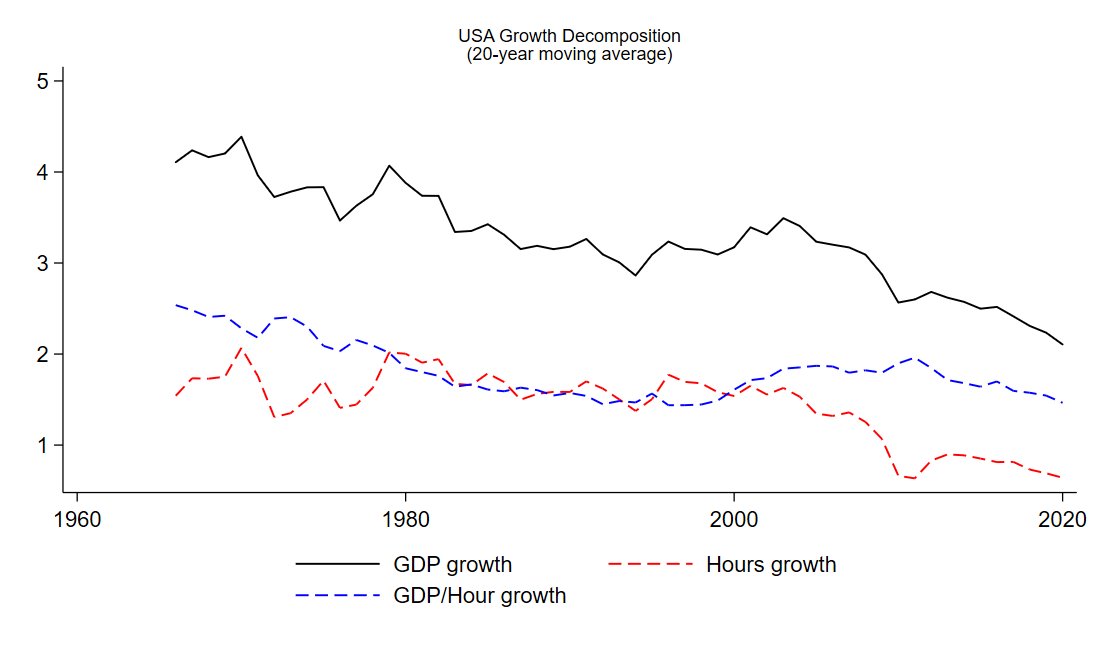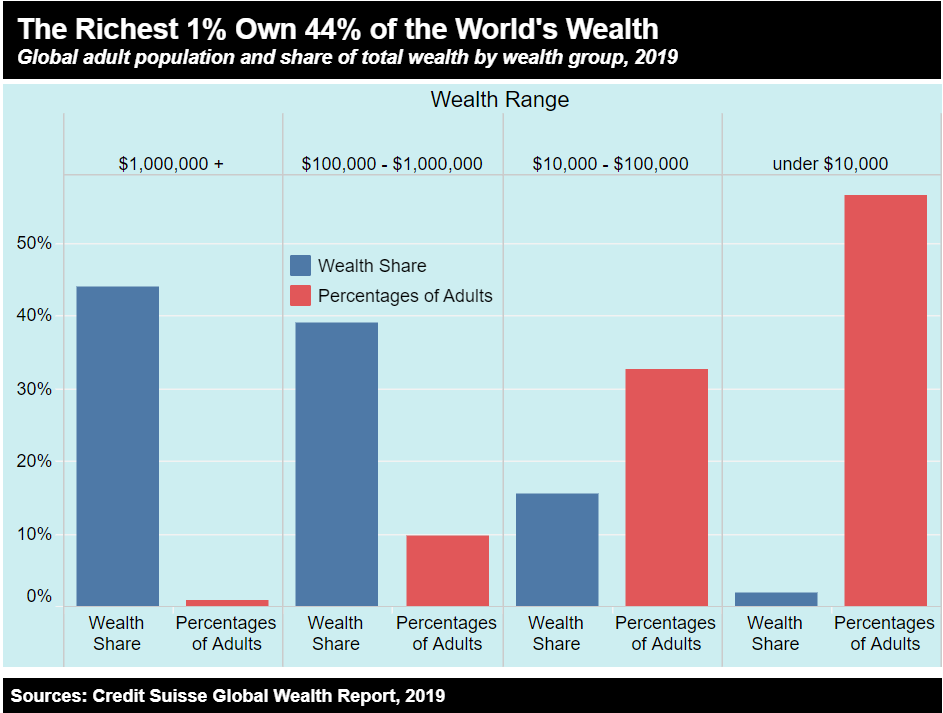
US needs a strong immigration policy to reverse the long-run decline in growth
To understand the argument, we'd need to get a bit into growth accounting
20 year growth rate just before the pandemic was at its lowest since WWII (black line)
To understand the argument, we'd need to get a bit into growth accounting
20 year growth rate just before the pandemic was at its lowest since WWII (black line)

Growth can be decomposed into growth in hours people work (red line) and productivity growth (blue line)
Both components are also at their lowest, but decline in hours growth is the steepest. Why?
A combination of two factors:
Both components are also at their lowest, but decline in hours growth is the steepest. Why?
A combination of two factors:
(i) the big run-up in women entering the labor force is maturing out
(ii) work force is aging / fertility rate declining. In fact, U.S. fertility rate is now well below replacement
So red line will continue to push growth downwards
(ii) work force is aging / fertility rate declining. In fact, U.S. fertility rate is now well below replacement
So red line will continue to push growth downwards
This is a problem, especially as the U.S. increasingly relies on deficit-financed spending / investment
A higher growth rate makes it easier to sustain the rising deficit, with interest rate very low
However, a *declining* growth rate will squeeze the arithmetic
A higher growth rate makes it easier to sustain the rising deficit, with interest rate very low
However, a *declining* growth rate will squeeze the arithmetic
The build back better agenda is more likely to be successful if it is accompanied by a robust reversal in immigration policy
Path to citizenship would be an excellent start for immigrants already in the US, but the country also needs a healthy flow of new immigrants every year
(for those who tend to lean right, this can help keep taxes low!)
(for those who tend to lean right, this can help keep taxes low!)
• • •
Missing some Tweet in this thread? You can try to
force a refresh





